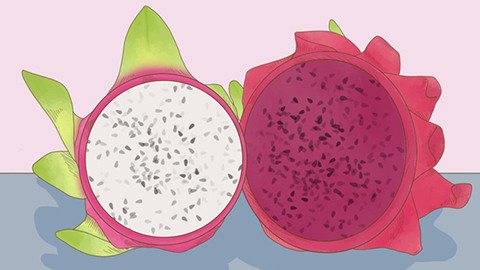Can you eat dragon fruit flesh if it turns transparent and soft?
Generally speaking, whether transparent and soft dragon fruit flesh is edible depends on the cause of the change. The specific analysis is as follows:

If the dragon fruit flesh becomes translucent and slightly soft due to high ripeness, and the flesh is only mildly tender throughout with no off-odor, no darkening or rotting on the cut surface, and the skin remains intact without damage or mold spots, this indicates normal ripening and the fruit is safe to eat. Highly ripe dragon fruit contains more sugar and has a softer, sweeter, and more delicious texture. Simply peel the skin before consumption—it remains safe and flavorful.
However, if the dragon fruit flesh turns translucent and soft accompanied by an unpleasant odor (such as sourness or fermentation), localized blackening, oozing liquid, or if the skin shows damage or mold spots, this indicates spoilage, and the fruit should not be consumed. Spoiled dragon fruit harbors large amounts of microorganisms that may irritate the gastrointestinal tract if eaten, potentially causing discomfort such as abdominal pain and diarrhea, and posing risks to health.
When selecting dragon fruit, choose those with bright red skin, slightly soft but elastic when pressed, and free from damage. Avoid purchasing overly soft fruits or those with mold spots on the skin. After purchase, store at room temperature in a well-ventilated area and consume promptly. Carefully inspect the flesh before eating; if in doubt about its condition, it's best not to eat it, to ensure food safety.




